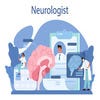Understanding Restless Leg Syndrome: Key Causes and Contributing Factors
Restless Leg Syndrome (RLS), also known as Willis-Ekbom Disease, is a neurological disorder characterized by an uncontrollable urge to move the legs, often accompanied by uncomfortable sensations. This condition typically occurs during periods of rest or inactivity, particularly in the evening or at night, leading to difficulties in falling or staying asleep. The exact cause of RLS is not fully understood, but several factors have been identified as potential contributors to its development. Understanding these causes is crucial for effective management and treatment of the condition.
Genetic Factors
One of the primary factors believed to contribute to RLS is genetics. Research indicates that RLS can run in families, suggesting a hereditary component. Studies have identified specific genetic variations that are more common in individuals with RLS compared to those without. This genetic predisposition may influence the functioning of the brain’s dopamine system, which plays a critical role in regulating movement and sensations. Consequently, individuals with a family history of RLS are at a higher risk of developing the condition.
Dopamine Dysfunction
Dopamine, a neurotransmitter involved in controlling muscle movement, is thought to play a significant role in RLS. Abnormalities in dopamine signaling or receptor function in the brain may contribute to the development of RLS. Dopamine deficiency or dysfunction can lead to impaired regulation of sensory and motor pathways, resulting in the characteristic sensations and urge to move the legs. This is supported by the fact that medications used to increase dopamine levels, such as dopamine agonists, are often effective in alleviating RLS symptoms.
Iron Deficiency
Iron deficiency is another factor associated with RLS. Iron is essential for proper dopamine function and overall neurological health. Low levels of iron in the brain, even in the presence of normal serum iron levels, can impair dopamine production and lead to RLS symptoms. This is particularly relevant in cases where RLS is accompanied by anemia or other conditions affecting iron absorption or utilization. Addressing iron deficiency through dietary changes or supplements may improve symptoms in some individuals.
Chronic Diseases and Conditions
Certain chronic diseases and conditions are known to be associated with RLS. For example, individuals with chronic kidney disease, diabetes, and peripheral neuropathy are more likely to experience RLS. These conditions may exacerbate symptoms through various mechanisms, such as impaired blood flow, nerve damage, or metabolic imbalances. Managing the underlying chronic condition can sometimes alleviate RLS symptoms or reduce their severity.
Pregnancy
Pregnancy, particularly in the third trimester, is a well-documented trigger for RLS. Hormonal changes, increased blood volume, and potential deficiencies in nutrients like iron and folate during pregnancy may contribute to the onset or worsening of RLS symptoms. While RLS during pregnancy often resolves after delivery, it can be a significant source of discomfort and sleep disruption for expectant mothers.
Lifestyle Factors
Lifestyle factors, such as stress, lack of physical activity, and poor sleep hygiene, may also influence the severity of RLS symptoms. Stress and anxiety can exacerbate the discomfort associated with RLS, while a sedentary lifestyle and irregular sleep patterns can contribute to the persistence of symptoms. Adopting a balanced lifestyle, including regular exercise and effective stress management, can help mitigate these factors.
Conclusion
Restless Leg Syndrome is a complex condition with multiple contributing factors. While genetic predisposition, dopamine dysfunction, and iron deficiency are significant causes, other factors such as chronic diseases, pregnancy, and lifestyle choices also play a role. Understanding these causes is essential for developing a comprehensive treatment plan that addresses both the underlying factors and the symptoms of RLS. Effective management often involves a combination of medical treatment, lifestyle adjustments, and addressing any contributing health conditions. As research continues to advance, a deeper understanding of RLS will hopefully lead to more targeted and effective treatments for those affected by this challenging disorder.
